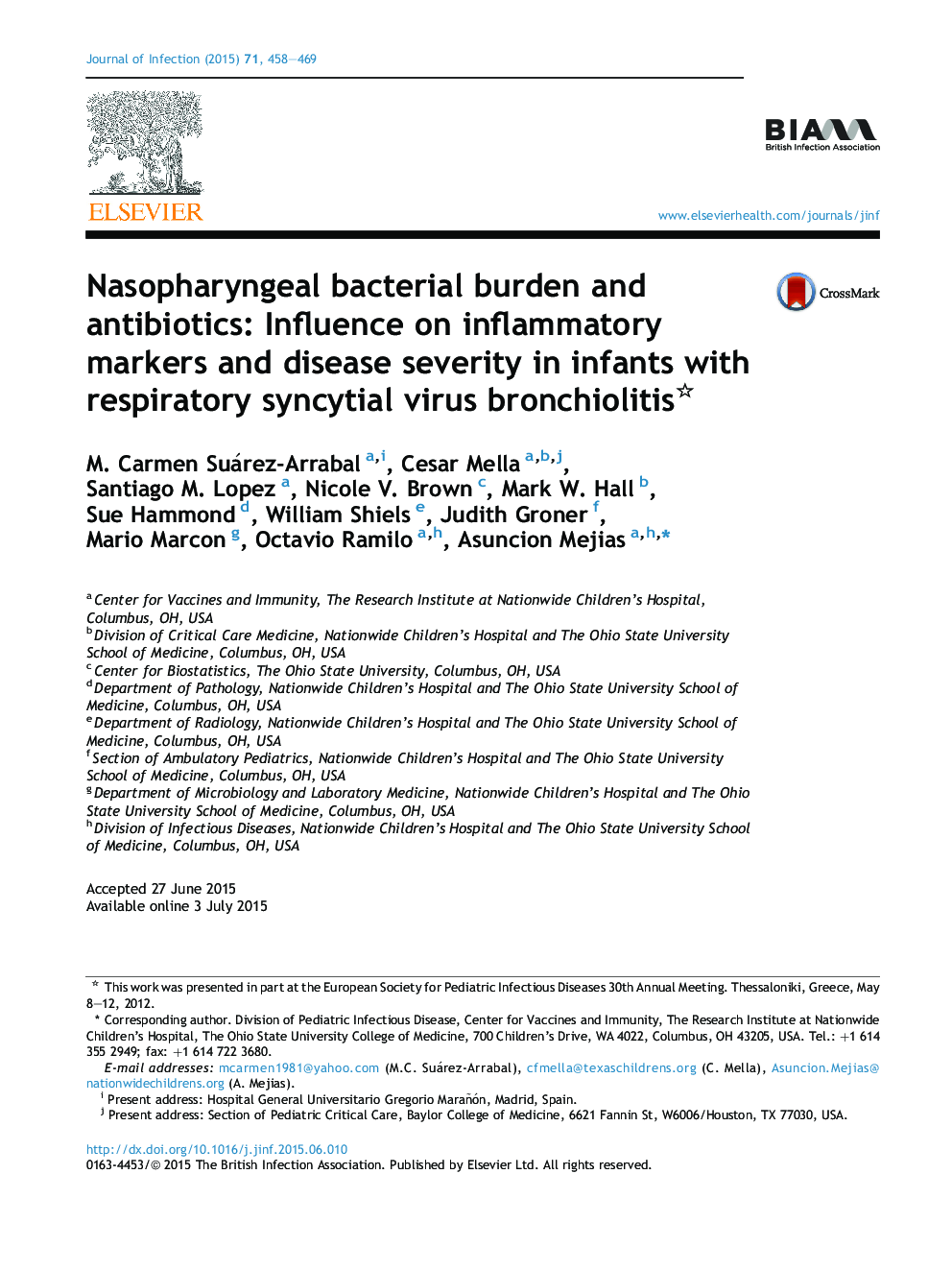| کد مقاله | کد نشریه | سال انتشار | مقاله انگلیسی | نسخه تمام متن |
|---|---|---|---|---|
| 6122856 | 1219608 | 2015 | 12 صفحه PDF | دانلود رایگان |
- Eighty one percent of infants hospitalized with RSV bronchiolitis were colonized with potentially pathogenic bacteria.
- Antibiotics were commonly used and associated with longer oxygen need and lobar consolidation in RSV-infected infants.
- Overall and Gram-negative (GNB) NP bacterial colonization was more common in RSV-infected infants vs. healthy controls.
- RSV-infected infants colonized with GNB had increased mucosal and blood neutrophil numbers, plasma IL-6 and IL-8 and duration of oxygen.
SummaryObjectivesAnimal studies suggest that RSV increases nasopharyngeal (NP) bacterial colonization facilitating bacterial infections. We investigated the influence of antibiotic treatment and colonization with potentially pathogenic bacteria on inflammatory markers and disease severity in RSV-infected in infants.MethodsHealthy young infants hospitalized with RSV bronchiolitis (n = 136) and age-matched healthy controls (n = 23) were enrolled and NP samples cultured for potentially pathogenic bacteria including: Gram-positive bacteria (GPB): Staphylococcus aureus, Streptococcus pneumoniae, β-hemolytic Streptococcus; and Gram-negative bacteria (GNB): Moraxella catarrhalis and Haemophilus influenzae. Clinical parameters and plasma IL-8, IL-6 and TNF-α concentrations were compared according to the bacterial class and antibiotic treatment.ResultsAntibiotic treatment decreased by 10-fold NP bacterial recovery. Eighty-one percent of RSV infants who did not receive antibiotics before sample collection were colonized with pathogenic bacteria. Overall, GNB were identified in 21% of patients versus 4% of controls who were mostly colonized with GPB. Additionally, in RSV patients NP white blood cell counts (p = 0.026), and blood neutrophils (p = 0.02) were higher in those colonized with potentially pathogenic bacteria versus respiratory flora. RSV patients colonized with GNB had higher plasma IL-8 (p = 0.01) and IL-6 (p < 0.01) concentrations than controls, and required longer duration of oxygen (p = 0.049).ConclusionsInfants with RSV bronchiolitis colonized with potentially pathogenic bacteria had increased numbers of mucosal and systemic inflammatory cells. Specifically, colonization with GNB was associated with higher concentrations of proinflammatory cytokines and a trend towards increased disease severity.
Journal: Journal of Infection - Volume 71, Issue 4, October 2015, Pages 458-469
